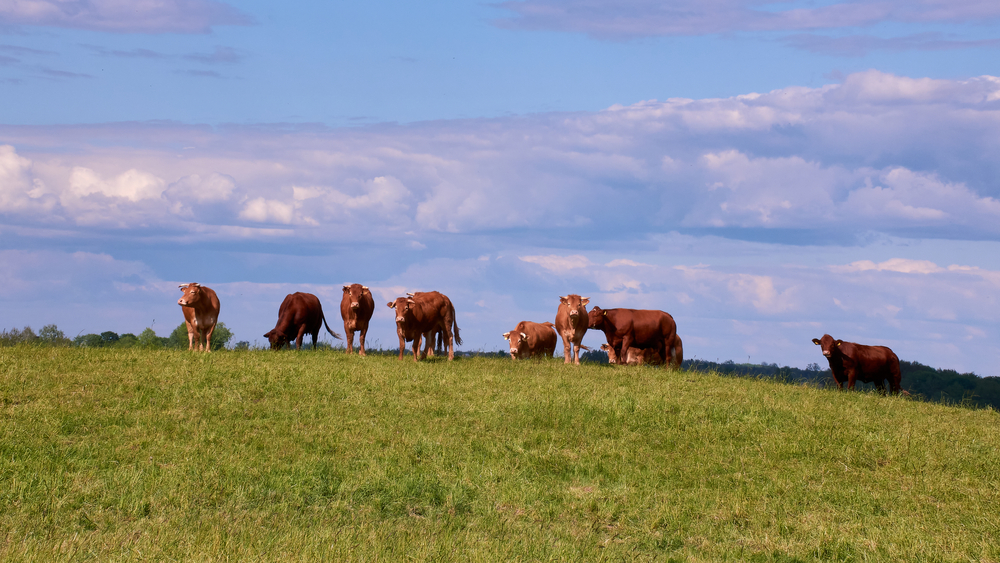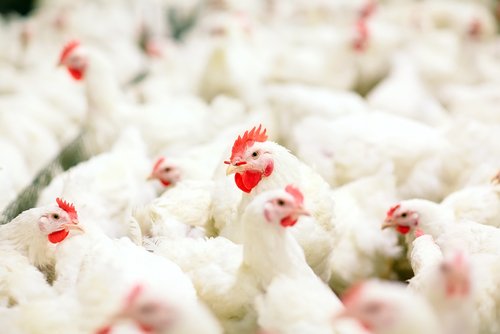Meet the Daddy Warbucks of Deep Ecology
Douglas Tompkins started The North Face Company, a Berkeley-based mountain climbing equipment purveyor, in the 1960s. He later sold it to start the very successful Esprit clothing company. When Tompkins bailed out in 1990, he reaped a profit estimated at $125 million. As he tells it, he found himself interested and involved more and more in environmental preservation, and less in the fashion industry. Burned out, he divorced, later to marry Kris McDivitt Tompkins, who stepped down in 1993 as chief executive of Patagonia, the wildly successful outdoor clothing company.Tompkins began to study “deep ecology,” an “ecocentric” view that rejects the idea of inherent human superiority, instead giving equal moral weight to all elements of nature, from the living to the inanimate. (See The 8 Points of Deep Ecology below) Tompkins used his fortune to endow the Foundation for Deep Ecology in 1990.
How to Stop Progress
The first mention of the Foundation is its sponsorship of “The Second Transitional Organic Cotton Conference” in 1993. The conference (also sponsored by the Kellogg Foundation, Esprit, The Gap, Patagonia Inc., the Pesticide Action Network, Farm Aid, and the Natural Resources Defense Council) goal was to encourage alternative methods for growing and processing cotton that used less pesticides and fertilizers. (“Environmental movement comes home at organic cotton conference,” PR Newswire, 8/26/93)In 1995, the foundation turned its attention toward helping to fund “TV-Free America,” the movement that sponsored “National TV Turnoff Week.” (“Is it time for a TV diet?,” Charleston Daily Mail, 4/21/95) The Foundation’s anti-technology bias began to clearly show through with its sponsorship in 1996 of the Second Luddite Congress. (The Luddites were a band of English weavers and cloth workers who in 1812 destroyed factories and killed a factory owner in trying to save their jobs.) (“Activists call for grass-roots ‘Luddite’ revolution,” The Columbus Dispatch, 4/16/96)To understand where the foundation has been and is heading, one need look no further than its program director, Jerry Mander. Mander is president of the International Forum on Globalization (IFG), a think tank opposed to globalization. IFG says its mission is to “reverse the globalization process by encouraging ideas and activities which revitalize local economies and communities, and ensure long term stability.”
Mander’s books could well be a Luddite reading list:
- Four Arguments for the Elimination of Television
- In the Absence of the Sacred: The Failure of Technology and the Survival of the Indian Nations
- The Case Against the Global Economy: And for a Turn Toward the Local
- One of IFG’s focal points has been agriculture. In 1998, IFG brought together leading anti-agribusiness activists to discuss plans for destroying modern agriculture. An excerpt from the agreed upon “Vancouver Statement On the Globalization and Industrialization of Agriculture” is typical of IFG’s position:
“We believe that the industrialization and globalization of food and fiber imperils humanity and the natural world. Reducing farming to a monocultural, synthetic, transnational corporate business threatens the health, nourishment, right livelihood, and spirituality of communities and the earth. It is insane to believe that we must poison land and water and waste the soil in order to feed and clothe ourselves. Five decades of the so-called Green Revolution have not only led to the destruction and contamination of water, soil, biodiversity, and human communities, but exacerbated hunger worldwide. One of the most critical impacts of industrial agriculture is climate change, which will destroy the natural basis of agriculture itself. The patenting of life, corporate ownership and manipulation of our genetic heritage is one of the greatest threats ever imposed by industrial agriculture: the human right to feed, clothe and shelter ourselves and our families is at stake. Institutions and treaties such as the World Trade Organization, the General Agreement on Tariffs and Trade, Codex Alimentarius, North American Free Trade Agreement, the Food and Agriculture Organization, and the European Union have accelerated the process of agricultural industrialization and globalization while promoting the rights of corporations over those of people.”
IFG was very active in organizing both the Seattle World Trade Organization protests and the World Bank/International Monetary Fund protests in Washington, sponsoring activist “teach-ins” in both locations.IFG’s board is a who’s who of anti-progress activists, including these examples: Maude Barlow of the Council of Canadians, Mark Ritchie of IATP, Vandana Shiva of the Foundation for Science, Technology & Ecology, Martin Khor of the Third World Network (Consumers Association of Penang), Andrew Kimbrell of the International Center for Technology Assessment (Organic Consumers Association), and Lori Wallach of Public Citizen.
A Luddite Santa Claus
In addition to helping IFG, Mander has used the Foundation for Deep Ecology to assist his anti-progress friends. (IFG reported income of $858,744 in 1998. Between June 1998 and June 1999, the Foundation for Deep Ecology gave IFG $200,000.) The Foundation for Deep Ecology reported having $146,517,138 on hand in June of 1999. Some recipients of the Foundation’s grants in 1998/1999 include:
| Recipient | Amount | Purpose |
| A SEED Europe | 40,000 | General Support |
| A SEED Europe | 16,630 | “Rounding up Monsanto” campaign |
| Center for Rural Affairs | 10,000 | “Rounding up Monsanto” campaign |
| Consumer’s Choice Council | 15,000 | Defend eco-labeling |
| Consumers Association of Penang | 125,000 | Third World Network support |
| Consumers Association of Penang | 50,000 | General support |
| Consumers Association of Penang | 25,000 | General support |
| Edmonds Institute | 3,000 | “Biodevestation” teach-in |
| Farm Folk / City Folk Society | 20,000 | Sustainable food system in British Columbia |
| Farm Folk / City Folk Society | 20,000 | General support |
| Foundation for the Promotion of Sustainable Development | 20,000 | General support |
| Foundation on Economic Trends | 100,000 | General support (Jeremy Rifkin) |
| Foundation on Economic Trends | 50,000 | General support |
| Friends of the Earth | 42,000 | General support |
| Friends of the Earth | 20,000 | Trade and investment program |
| Friends of the Earth | 10,000 | “Economics for the Earth” program |
| Friends of the Earth | 5,000 | Seventh Generation magazine |
| Institute for Agriculture and Trade Policy | 75,000 | Sustainable agriculture program |
| Institute for Food and Development Policy | 15,000 | Confronting industrial agriculture |
| International Center for Technology Assessment | 103,000 | “Fatal harvest” book project |
| International Center for Technology Assessment | 100,000 | General support |
| International Center for Technology Assessment | 30,000 | Anti-technology society support |
| International Center for Technology Assessment | 25,000 | Organic watch |
| International Center for Technology Assessment | 20,000 | Sustainable development |
| International Center for Technology Assessment | 5,000 | Center for Food Safety-litigation strategy |
| Mothers & Others for a Livable Planet | 25,000 | Organic fiber campaign |
| Mothers for Natural Law | 10,000 | General support |
| National Family Farm Coalition | 20,000 | Pure food & fair prices campaign |
| Pesticide Action Network | 10,000 | Methyl bromide |
| Public Citizen Foundation | 70,000 | General Support |
| Rainforest Action Network | 40,000 | No new fossil fuel exploration campaign |
| Rainforest Action Network | 35,000 | General support |
| Rainforest Action Network | 32,400 | General support |
| Rainforest Action Network | 30,240 | General support |
| Rainforest Action Network | 27,000 | General support |
| Rainforest Action Network | 16,000 | General support |
| Rainforest Action Network | 15,000 | Forest communities project |
| Rainforest Action Network | 10,800 | Supplemental general support |
| Research Foundation for Science, Technology, & Ecology | 40,000 | General support (Vandana Shiva) |
| Research Foundation for Science, Technology, & Ecology | 40,000 | General support |
| Rural Advancement Foundation International | 25,000 | Campaign against biopiracy |
| Sierra Club Foundation | 20,000 | Great Oswegatchie Wilderness campaign |
| Sierra Club Foundation | 15,000 | Responsible trade |
| Soil Association | 10,000 | Local food links project |
| Tides Center | 10,000 | Transnational resource & action center |
| TV-Free America | 10,000 | General support |
| Worldwatch Institute | 8,000 | General support |
The 8 Points of Deep Ecology
(From “Ecology, Community and Lifestyle” by Arne Naess)
- The flourishing of human and non-human life on Earth has inherent value. The value of non-human life forms is independent of the usefulness of the non-human world for human purposes.
- The richness and diversity of life forms are also values in themselves and contribute to the flourishing of human and non-human life on Earth.
- Humans have no right to reduce this richness and diversity except to satisfy vital needs.
- Present human interference with the non-human world is excessive, and the situation is rapidly worsening.
- The flourishing of human life and cultures is compatible with a substantial decrease of human population. The flourishing of non-human life requires such a decrease.
- Significant change of life conditions for the better requires change in policies. These affect basic economic, technological, and ideological structures.
- The ideological change is mainly that of appreciating life quality (dwelling in situations of inherent value) rather than adhering to a high standard of living. There will be profound awareness of the difference between big and great.
- Those who subscribe to the foregoing points have an obligation, directly or indirectly, to participate in the attempt to implement the necessary changes.




